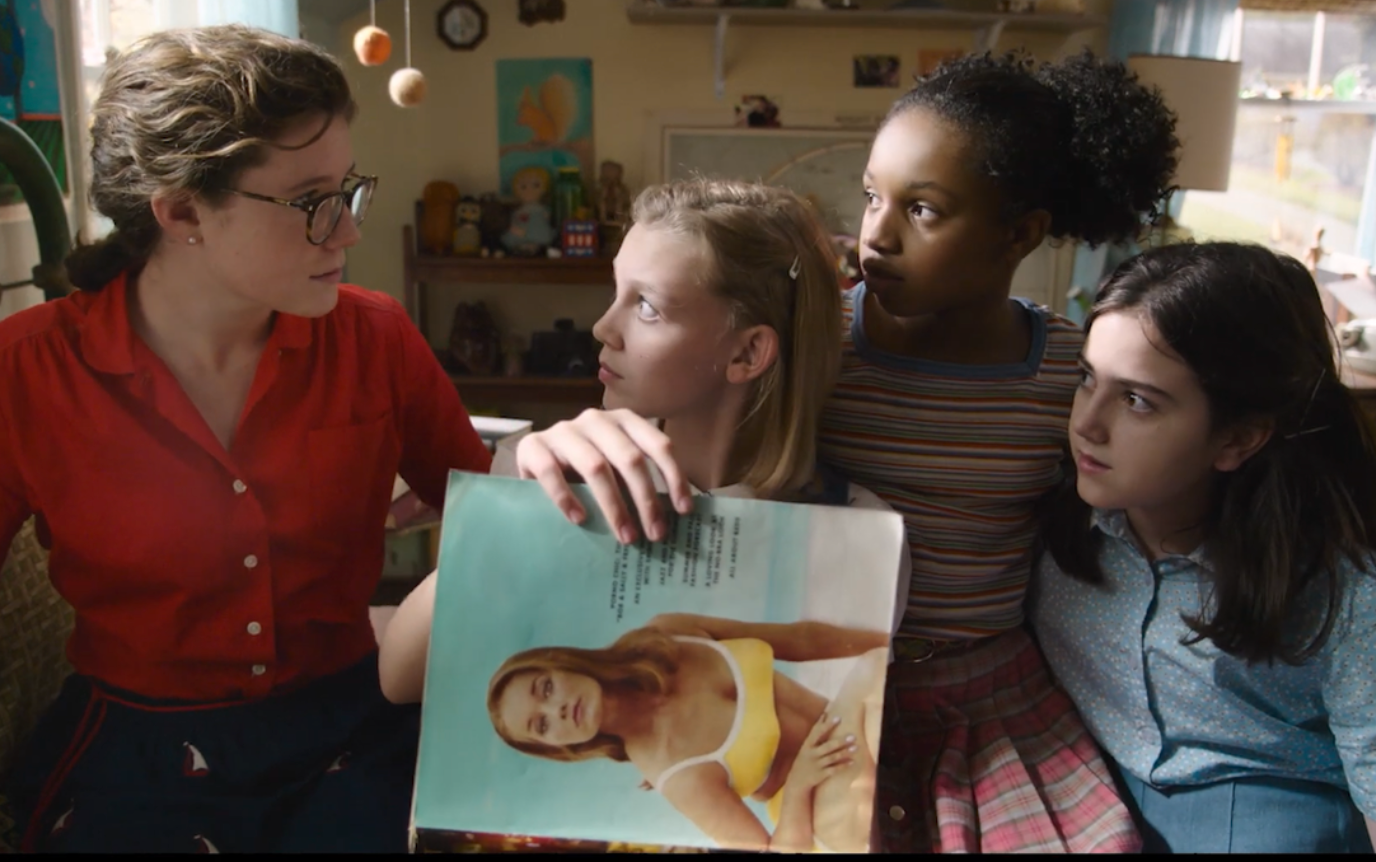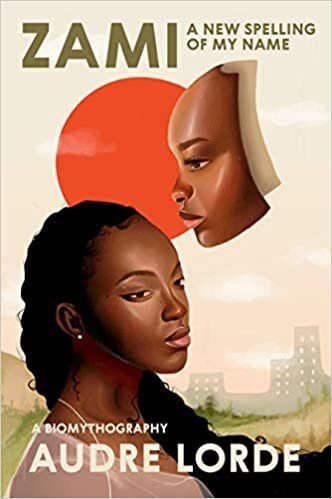By L.Tanenbaum
•
19 Aug, 2020
Book collections are my pornography. I'm not interested in individual titles—anyone can pretend they're reading Zadie Smith. What makes my pulse race is the ways in which people arrange their books.
By L.Tanenbaum
•
17 Jan, 2018
Why do so many women agree to unwanted sex?
By L.Tanenbaum
•
06 Dec, 2017
Columbia Journalism School blog, December 7, 2017 Years before pussyhats and #MeToo, Helen Benedict explored the ways in which many women experience sexual violence—only to be blamed for their own victimization. An author of seven novels and five works of nonfiction, and a journalism professor at Columbia University, Benedict has focused for the past decade on the women who served in the Iraq War. Her 2009 nonfiction book The Lonely Soldier described the experiences of women fighting in the war and the astonishing abuse they endured by their male fellow soldiers. The Lonely Soldier inspired the Academy Award-nominated documentary The Invisible Warand instigated a landmark lawsuit against the Pentagon on behalf of victims of military sexual assault. Benedict developed the book into a play, The Lonely Soldier Monologues, and continues to shed light on the experiences of women and war through two novels—Sand Queen, a Publishers Weekly “Best Contemporary War Novel,” and now Wolf Season, just out from Bellevue Literary Press. Benedict is currently writing a third book to create a trilogy of novels about the Iraq War. Wolf Season picks up where Sand Queen leaves off, following Naema, who had been a medical student from Baghdad in the first novel, experiencing displacement and the torture of her father, and is now a widowed single mother and physician at a Veterans Affairs clinic in upstate New York. When a hurricane hits their small town, Naema is injured, and her life becomes entwined with a veteran who has survived gang-rape by her fellow soldiers and whose husband was killed in Iraq. The wife of a Marine, who rapes and abuses her while home on leave and then is killed when he returns to Iraq, is also central in this story. The three women are torn by their experiences with war, and their children are likewise wounded in literal and figurative ways. Wolf Season reveals that the traumas of war, particularly for women, never dissipate. In this interview, Benedict shares her motivations, methodologies, and thoughts on current politics. What initially motivated you to research women in the Iraq War? All my writing life, I have examined and exposed the way women are treated by the world, so when the United States invaded Iraq in 2003, I became determined to do the same in the context of war. This grew even more urgent when I learned that more American women were serving and dying in Iraq than in any war since World War Two, yet some 90 percent were being sexually harassed and nearly a third were raped or assaulted by their supposed brothers-at-arms. Nobody was exposing this at the time, so I felt I had to. Out of this work came my nonfiction book,The Lonely Soldier, and a play called The Lonely Soldier Monologues. At what point in this project did you decide that one genre would not be enough for you to express everything you wanted to express? Sometimes, during my interviews with women veterans, they would hit memories so painful they would fall silent, hands shaking, eyes filling with tears, unable to speak further. This moved me profoundly, and I came to understand that the true story of war lay within those very silences: the private, internal experiences of war and trauma hidden deep inside every soldier’s heart. I knew I could only reach that internal story through fiction. But soldiers’ stories are, of course, only one side of what is going on in Iraq. I wanted to tell the other side, too, that of civilian Iraqis, a side that has been missing from American public discourse ever since we invaded. So, I found some Iraqi refugees and talked to them for hours, just as I had the soldiers. They, too, were generous, courageous, and eager to help me. They, too, wanted to be heard. D.H. Lawrence once said, “…war is dreadful. It is the business of the artist to follow it home to the heart of the individual fighters.” I wrote Wolf Season because I, too, wanted to follow the war home to the heart. For you, what are the limits of journalism? Of fiction? The limits of journalism are the limits of the human being. A journalist who wishes to render the inner, private, profoundly human reaction to an event is limited to what her sources are willing or able to say. Nobody can be entirely open, self-aware, or honest all the time, and memory is a malleable and fickle creature, so it is very hard for a journalist to know when she is hearing the truth. Fiction can fly right over all these obstacles, taking the writer and reader out of their skins and putting them in the skins of others. What is more, a fiction writer can do this without exploiting, pressuring, exposing, or hurting real human beings. As for the limits of fiction, I see none but those of the commercial market. Fiction isn’t taken as seriously as it used to be. Novels were once seen as the place to go to for an understanding of the human heart, motivations, and society. Now people go to movies, TV, nonfiction, or self-help books for this. Yet nothing can teach compassion and empathy like a novel. What courses do you teach at Columbia? How has your work with journalism students informed your own journalism—and fiction? I teach long-form narrative journalism; a style course; and a reporting class. My students bring me real life stories from all over the city, often the world, which enriches my knowledge. Best of all, they bring me their curious, generous-hearted, passionate selves, burning with the desire to, as Joseph Pulitzer put it, “Afflict the comfortable, and comfort the afflicted.” That is a priceless gift. Is your work feminist? Absolutely, my work is feminist! Feminism, which I define as the belief that all people should have equal freedom of movement, respect, opportunities and rights, informs all my work. I think I became a feminist as soon as I learned to read. Like many writers, I was a loner as a child, partly because my father was an anthropologist who was always whisking us off to live on islands in the Indian Ocean, where I didn’t go to school and had few playmates. So I spent my time reading Mary Poppins, Pippi Longstocking, the Oz books and C.S. Lewis’s Narnia books – all, I realize now, featuring brave, adventurous girls. We traveled in Africa. Almost got wrecked in a hurricane aboard ship. Watched an elephant eat our roof. I wrote a novel at age 8 and another at 11. At 12, I read Jane Eyre, a book that infected me with a passion for social justice. When I was in my teens, we moved to Berkeley, CA during the time of Black Power and the Panthers and demonstrations against the Vietnam War. I read The Autobiography of Malcolm X and Soul on Ice, and my passion for social justice grew into something more adult and political. When your readers close this book, what do you want them to experience? Primarily, I want my readers to be moved – no surprise there. But I would be extra gratified if they also feel compassion for my characters and are able to bring that compassion to real life refugees, veterans, and all those affected by war. Posted on https://journalism.columbia.edu/women-and-war .
By L.Tanenbaum
•
12 Oct, 2017
U.S. News & World Report, October 12, 2017 Gwyneth Paltrow, Angelina Jolie and Ashley Judd – congratulations, and welcome to the fastest-growing club in America: women who are shamed and punished for their sexuality. You're a big-name celebrity who was sexually harassed by movie mogul Harvey Weinstein and then blamed for what you endured by so-called women's rights champions like Donna Karan, who said you were "asking for it" because of your clothing. Come right over and sit with all the other women denigrated as "sluts" and "hoes" – which includes financially struggling women desperately trying to get an abortion (last week the U.S. House passed an abortion ban) and those whose employers won't cover their IUD or birth control pill prescription (the White House just rolled back no-copay birth control under the Affordable Care Act). We are all sluts now. The public policy decisions and Hollywood revelations of the past week, which on the face of it may appear isolated and unrelated, actually connect tightly like pieces of a jigsaw puzzle. Snapped together, they reveal the omnipresence of slut-shaming, which shapes laws and norms, affecting all American women. To continue reading, click here.
By L.Tanenbaum
•
15 Feb, 2017
U.S. News & World Report, February 15, 2017 As wrong and sexist as New York Times writer Jacob Bernstein was to call Melania Trump a "hooker," there is some feminist poetic justice in his slur. After all, Donald Trump has repeatedly reduced women to sexual objects, devaluing them as less than fully human. He falsely accused Alicia Machado, the former Miss Universe whom Hillary Clinton elevated, of having appeared in a "sex tape." He told "Access Hollywood" host Billy Bush that because he's famous, he can grab women by the genitals. He dismissed Clinton by saying he "wasn't impressed" by her backside. He discredited the women who have accused him of groping or kissing them against their will by calling them "horrible, horrible liars," adding that one of them can't be telling the truth because, as he said, "Look at her." If ever there were someone deserving of a sexual put-down, it's Donald Trump. But Bernstein – who made his remark privately to model Emily Ratajkowski at a Fashion Week party – leveled his insult not at the president but at his wife. And it is never acceptable to insult a woman based on her real or presumed sexual history. Doing so is straight-up slut-shaming. To continue reading, click here.
By L.Tanenbaum
•
27 Oct, 2016
The Huffington Post, October 28, 2016 We are at a pivotal moment in public conversation about the sexual objectification of women. The claim that feminists have been making for decades—that grabbing or kissing someone without consent constitutes sexual assault—is finally understood and acknowledged. This can also be a watershed moment in recognizing the mindset that creates the foundation for assault: slut-shaming. Looking at Hillary Clinton’s past in addition to Donald Trump’s helps us understand how far we have come. Back in the 1990s, Hillary Clinton engaged in slut-shaming: she denigrated the credibility of women who claimed they had been sexually involved with or abused by her husband, Bill Clinton. Hillary Clinton’s supporters should address this piece of her history head-on instead of burying it. Betsey Wright, then a close adviser to the Clintons, told The New York Times earlier this month that discussing this history is “dredging up irrelevant slime from the past. ” But acknowledging Clinton’s tactics from over two decades ago and putting them in cultural context is necessary to show how much Clinton—and awareness about slut-shaming—has grown.... Continue reading here.
By L.Tanenbaum
•
16 Oct, 2015
The New York Times, October 16, 2015 Sexy police officer. Sexy nurse. Sexy cat. Sexy angel. Sexy devil. It’s time to start talking with your preteen or teenage daughter about her Halloween costume. Chances are, she has been plotting it out for weeks, if not longer — even though she may very well insist that she hasn’t spent one second thinking about it yet. While boys can get away with putting on a sports jersey and claiming they’ve dressed as an athlete, girls must deal with entirely different guidelines. “You’re supposed to wear a sexy costume,” says Evelyn Benson, 16, of Williamsburg, Brooklyn. “You don’t even have to talk about it because everyone knows it.” “Halloween is supposed to be about embracing the sinister, but when you are a girl, ‘sinister’ equals ‘sexual,’” points out Katie Cappiello, co-director and artistic director of the New York City-based theater program the Arts Effect. “It’s the one day when girls are expected to, and can actually justify, pushing the boundaries — but then they are punished for doing what they’re ‘supposed’ to do. It’s an impossible situation.” To read the rest of this article, click here.
By L.Tanenbaum
•
05 Aug, 2015
The Huffington Post, August 6, 2015 The Diary of a Teenage Girl is an astonishing movie about a 15-year-old girl as she discovers the power and pitfalls of her sexuality. Minnie (Bel Powley) has an affair with her mother's 35-year-old boyfriend, Monroe (Alexander Skarsgard), who in legal terms commits statutory rape; yet she does not see herself as a victim, nor does she behave like one. Minnie is ravenously sexually hungry, yet her appetite is portrayed as utterly normal. The surprise of this movie, based on the autobiographical novel by Phoebe Gloeckner and set against the backdrop of 1970s San Francisco, is that it portrays Minnie as someone in control of her body and her life -- even when her surrounding circumstances may lead us to conclude otherwise. To read the rest of this article, click here.
By L.Tanenbaum
•
14 Apr, 2015
The Huffington Post, April 15, 2015 Monica Lewinsky has been talking about it. The actress Ashley Judd has railed against it. The TV shows "Scandal," "Girlfriends' Guide to Divorce," and MTV's "True Life" have addressed it. Little League pitcher Mo'ne Davis refuses to be intimidated by it. Slut-shaming. No doubt you've heard this word, but you may be confused about its meaning. You also may be wondering why it has proliferated. Slut-shaming is the experience of being labeled a sexually out-of-control girl or woman (a "slut" or "ho") and then being punished socially for possessing this identity. Slut-shaming is sexist because only girls and women are called to task for their sexuality, whether real or imagined; boys and men are congratulated for the exact same behavior. This is the essence of the sexual double standard: Boys will be boys, and girls will be sluts. To read the rest of this article, click here .
By L.Tanenbaum
•
19 Feb, 2015
The Boston Globe, February 20, 2015 WITH SEXUAL assault reports coming in practically daily from universities around the country, efforts to reduce these incidents and help women who have experienced them are at an unprecedented high level. While the attention being paid to cases such as the recent conviction of two Vanderbilt University football players is necessary and long overdue, one crucial contributing factor of campus sexual assault is being overlooked: the widespread belief that some women are “sluts.” “Slut” is a slippery term; it can be applied to almost any girl or woman. And it is. I have yet to meet a woman under 25 who has not been called a “slut” or synonyms like “ho” or “whore” at some point. To most people, these terms refer to a shameful, disgusting woman who is out of control sexually. Yet the women thus labeled are rarely more sexually active than her peers. When an adolescent girl is called such names, very often she is not sexually active at all. Once labeled, however, a girl or woman becomes a target for slut-bashing (a term I coined in the 1990s to describe repeated acts of harassment conducted by peers) or slut-shaming (which may be more casual, occur only once, and conducted by strangers). To read more, click here.






